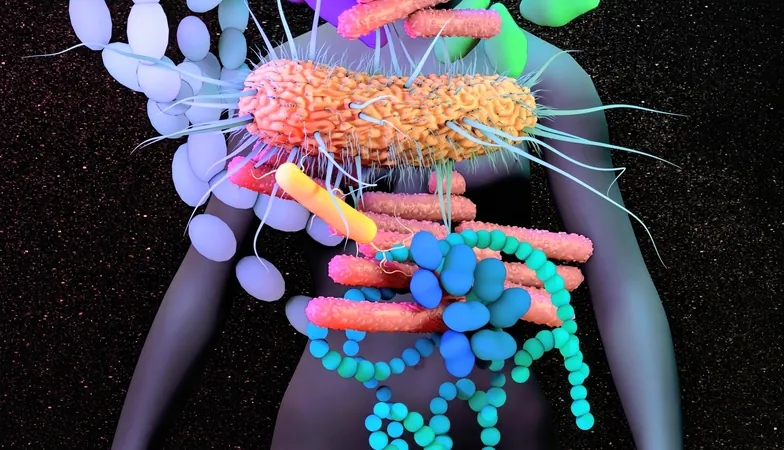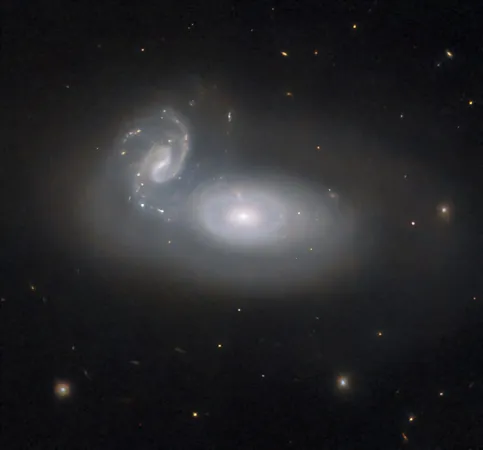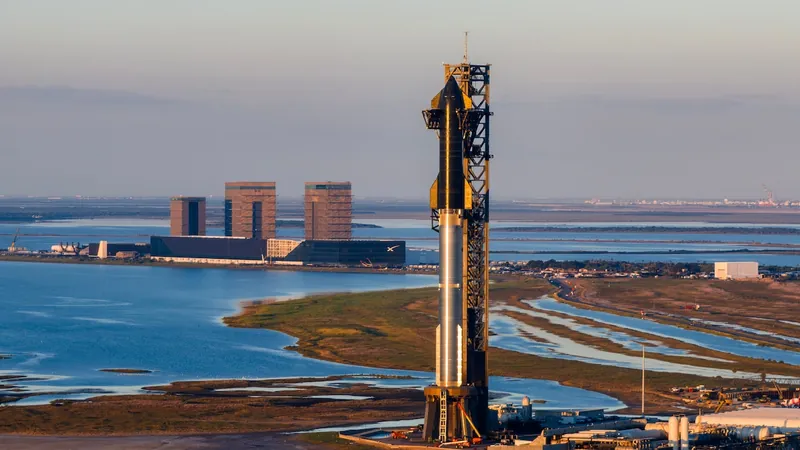
Humans: The Hidden Ecosystems Shaping Our Evolution!
2024-11-18
Author: Nur
In an eye-opening revelation, researchers are urging us to reconsider our understanding of identity and evolution. Far from being isolated beings, humans are essentially walking ecosystems, teeming with countless microbes, including bacteria and viruses. This groundbreaking idea posits that our microbial inhabitants may be just as significant in driving evolution and biological diversity as our genetic makeup.
The Microbial Revolution in Evolutionary Biology
Dr. Seth Bordenstein, a prominent figure at Penn State’s One Health Microbiome Center, advocates that a thorough examination of the relationships between microbes and their hosts can profoundly enhance our comprehension of biological diversity. He leads a global group of 21 scientists, collectively known as the Holobiont Biology Network, in this quest for knowledge.
Traditionally, evolution has been understood through the lens of genetic changes that occur over time, known as mutations, and the mechanisms that select for advantageous traits. However, the integration of the microbiome—the vast collection of microbes residing in and on organisms—into this paradigm introduces a fascinating complexity to the evolutionary narrative.
The Birth of Holobiont Biology
Historically, the study of life has often segregated macro-organisms and their microbial counterparts. Yet the realization that these microbes can significantly influence the traits and adaptations of their hosts has paved the way for a revolutionary field of study called Holobiont Biology. This discipline emphasizes viewing organisms and their resident microbes as a unified entity, rather than as separate entities engaging in a mere interdependent relationship.
Bordenstein emphasizes the critical nature of this relationship, stating, "Microbes are the foundation of the biosphere, and every organism interacts with them." This paradigm shift could hold the key to unlocking new strategies for health improvements, ecological resilience, and agricultural advances—including the potential to use microbes to combat chronic diseases or enforce climate-resilient farming practices.
Redefining Evolutionary Theory
The legacy of Charles Darwin, especially his insights in *Origin of Species*, has been foundational for biological sciences. However, understanding evolution from a microbial perspective allows us to expand this framework considerably, recognizing that microbes play a crucial role in the evolutionary history of all living beings.
As we consider the Modern Synthesis that combined Mendelian genetics with Darwin’s evolution theory in the early 20th century, we find ourselves on the brink of a new evolutionary revolution: a post-Modern Synthesis. This updated understanding weaves the role of microbes into the very fabric of our genetic and evolutionary beliefs.
A New Epoch in Life Sciences
To fully grasp this microbial impact, Bordenstein and his colleagues argue that biology education and research methods need radical transformation. "We must view animals and plants as a consortium of host and microbial cells," he asserts. New analytical tools will be necessary to decode the intricate interactions between microbes and genetics that dictate biological traits.
Microbes: The Unsung Heroes of Our Health
With a mysterious history of four billion years on Earth, microbes outnumber even the stars in the universe. Fascinatingly, there are more bacteria residing in our mouths than the total human population globally. Recent studies indicate that our microbial companions could influence serious health conditions, like colon cancer and cholesterol levels, suggesting they might exemplify even more variation in biological traits than our own genes.
Bordenstein asserts, “What we're learning today is that sometimes microbes explain more biological trait variation in organisms than the genes do.” This statement underscores the importance of understanding our ecosystems—our microbes—as we delve deeper into our biology.
As we move toward the future of biological sciences, it becomes paramount to remember that humanity is more than a collection of genes; we are interconnected ecosystems. The next time you engage in personal care—be it brushing your teeth or digesting your food—remember that you’re nurturing an entire ecosystem within you.
The Future Awaits!
This exciting research, published in the prestigious journal *Science*, heralds an era of exploration into the unseen forces shaping our biology and evolution. Stay tuned for more revelations that promise to reshape our understanding of life itself!



 Brasil (PT)
Brasil (PT)
 Canada (EN)
Canada (EN)
 Chile (ES)
Chile (ES)
 España (ES)
España (ES)
 France (FR)
France (FR)
 Hong Kong (EN)
Hong Kong (EN)
 Italia (IT)
Italia (IT)
 日本 (JA)
日本 (JA)
 Magyarország (HU)
Magyarország (HU)
 Norge (NO)
Norge (NO)
 Polska (PL)
Polska (PL)
 Schweiz (DE)
Schweiz (DE)
 Singapore (EN)
Singapore (EN)
 Sverige (SV)
Sverige (SV)
 Suomi (FI)
Suomi (FI)
 Türkiye (TR)
Türkiye (TR)